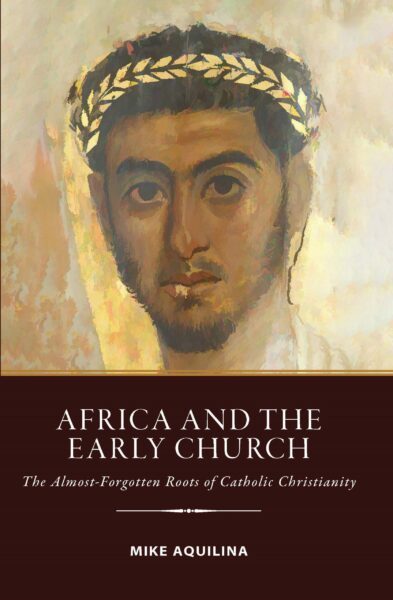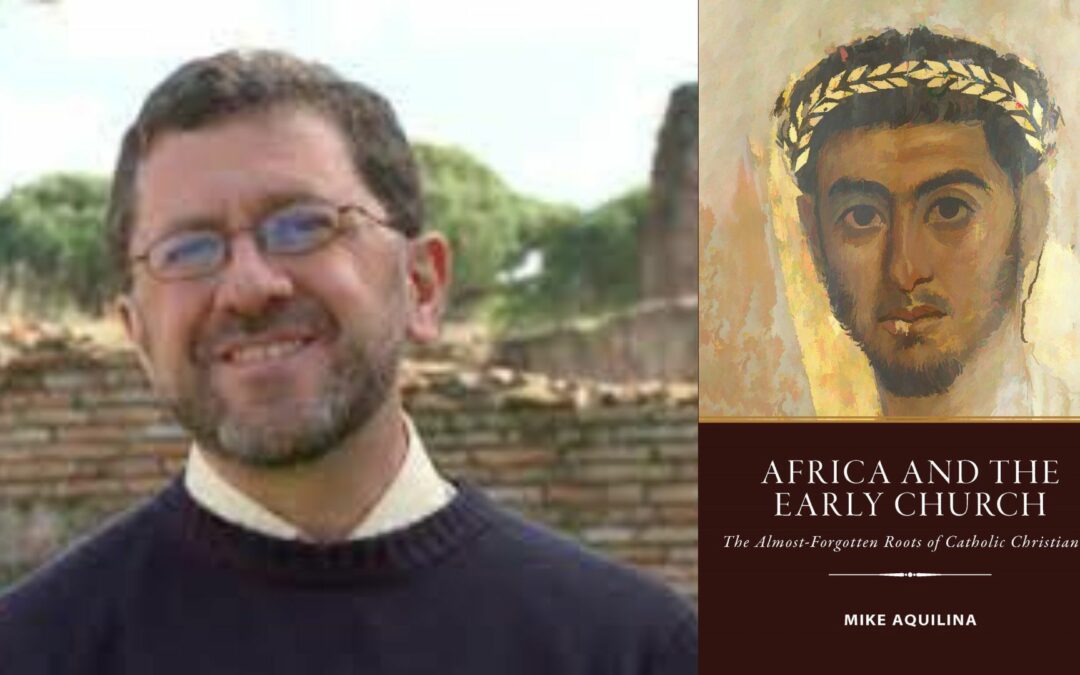Book Review: Africa and the Early Church (Catholic Black History)
Africa and the Roots of Catholicism
For Black History Month I have been reviewing books on themes relating to Catholicism and African or African-American culture. Today I will be reviewing a book that I have been looking forward to reading for some time now: Africa and the Early Church: The Almost Forgotten Roots of Catholic Christianity by Mike Aquilina.
I will begin by stating plainly that I am a big Mike Aquilina fan. In fact, Aquilina was an early influence on me. I remember reading his books and listening to his radio programs back when I was a young Catholic just beginning my study of Church history. I also have been blessed to write a volume for his “Reclaiming Catholic History” series with The Church and the Dark Ages. So, admittedly, I am a little biased in favor of the author and his work. I will, however, endeavor to remain impartial.
Africa and the Early Church
Okay, now on to my impartial review: this book was fantastic!
 Today we tend to think of Africa as mission territory. We forget, however, that the roots of Christianity on this continent are very ancient. As Aquilina points out, it was here that the Latin language was first used in Christian worship. The Church in Rome was using Greek into the second century.
Today we tend to think of Africa as mission territory. We forget, however, that the roots of Christianity on this continent are very ancient. As Aquilina points out, it was here that the Latin language was first used in Christian worship. The Church in Rome was using Greek into the second century.
It was here that the theological vocabulary of the Trinity was first hammered out. It was here that the Church worked out its theology of the sacraments. Africa provided fertile soil for the growth of Christianity and was a seedbed for some of Catholicism’s most fundamental ideas.
Sadly, much of Africa’s Christian heritage has been lost because, by and large, Christianity has been overtaken by Islam in the once Catholic lands of North Africa. Aquilina’s book helps us return to a time before the armies of the Caliph swept away the old Romano-Byzantine civilization of Africa, when places like Egypt, Libya, and Tunisia were intellectual hubs of the Christian world governed by saintly bishops and home to renowned theologians.
Aquilina’s book is divided up into three sections: the first deals with Roman “Africa,” which roughly corresponds to modern day Libya, Tunisia, and Algeria; the second treats Egypt with a focus on Alexandria, the intellectual heart of the Roman Empire; the final third of the book deals with Christianity in Ethiopia, the only African country to retain its Christian identity throughout the era of the Islamic conquests. Let us say a bit about each section:
Roman Africa
Aquilina spends the first third of the book educating us about Roman Africa, which was centered around the city of Carthage. I have always been enthralled by the history of Christianity here because its origins are so elusive; unlike other churches that were founded by an apostle, the founder (or founders) of the church in North Africa remain anonymous. Nevertheless, this became the first intellectual center of western Christendom.
Aquilina devotes chapters to the lives of the three great North African fathers: Tertullian, Cyprian, and Augustine. Their lives and writings are considered in turn. It is really astonishing what a debt the Church owes these North African fathers. Tertullian was the first Latin father to use the word “Trinity”. St. Cyprian is responsible formulating the first Christian ecclesiology (theology of the Church). And who can calculate the immense value of St. Augustine’s work?
I don’t want to give too much away here, save to say that you will be astonished at how much of our faith developed in this region.
Egypt
In the late Roman Empire, Alexandria, Egypt, was the intellectual center of the Roman world. Aquilina begins with a consideration of the Greek, Roman, and Jewish presence in Alexandria and then takes us through the great intellects of the city: Clement, Origen, and the great Athanasius. Athanasius’s life is intertwined with the Arian controversy and the First Council of Nicaea, which gave us our classical Christology enshrined in the Nicene Creed.
There is also a chapter dedicated to another renowned Egyptian, St. Anthony, who was instrumental in establishing Christian monasticism, which first began in Egypt.
Ethiopia
The third section of the book focuses on Christianity in Ethiopia. Ethiopia is unique amongst the Christian cultures of the world. Aquilina describes it as “a kind of alternate Christian universe where different aspects of Christianity have been emphasized” (pg. 150). Ethiopians are unique in that they have historically traced their monarchy back to King Solomon, based on an extra-biblical tale in which Solomon and the Queen of Sheba have a child who becomes the King of Ethiopia (he also steals the Ark of the Covenant and brings it back to his kingdom).
After a thousand years, or so, of a Jewish Ethiopian kingdom loosely based on Old Testament ritual, the Ethiopians are evangelized by St. Frumentius, a companion of St. Athanasius who was brought to Ethiopia as a slave. The section concludes with the legend of how the medieval monk Tekle Haymanot restored the Ethiopian monarchy—with some help from a talking rooster.
When I first got this book, I thought it would take me a while to get through. I ended up reading it in two sittings. The content itself is engaging and Aquilina has a nice writing style that somehow manages to pack every page with information while still moving things along swiftly. There is no superfluous sentence. It is somehow both dense and an easy read simultaneously.
I recommend this book highly. It will help you fill out your knowledge about one of Catholicism’s most ancient homelands.
As an Amazon Associate I earn from qualifying purchases.






